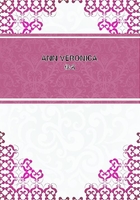
第2章
She wanted to live. She was vehemently impatient--she did not clearly know for what--to do, to be, to experience. And experience was slow in coming. All the world about her seemed to be--how can one put it? --in wrappers, like a house when people leave it in the summer. The blinds were all drawn, the sunlight kept out, one could not tell what colors these gray swathings hid. She wanted to know. And there was no intimation whatever that the blinds would ever go up or the windows or doors be opened, or the chandeliers, that seemed to promise such a blaze of fire, unveiled and furnished and lit. Dim souls flitted about her, not only speaking but it would seem even thinking in undertones. . . .
During her school days, especially her earlier school days, the world had been very explicit with her, telling her what to do, what not to do, giving her lessons to learn and games to play and interests of the most suitable and various kinds. Presently she woke up to the fact that there was a considerable group of interests called being in love and getting married, with certain attractive and amusing subsidiary developments, such as flirtation and "being interested" in people of the opposite sex.
She approached this field with her usual liveliness of apprehension. But here she met with a check. These interests her world promptly, through the agency of schoolmistresses, older school-mates, her aunt, and a number of other responsible and authoritative people, assured her she must on no account think about. Miss Moffatt, the history and moral instruction mistress, was particularly explicit upon this score, and they all agreed in indicating contempt and pity for girls whose minds ran on such matters, and who betrayed it in their conversation or dress or bearing. It was, in fact, a group of interests quite unlike any other group, peculiar and special, and one to be thoroughly ashamed of. Nevertheless, Ann Veronica found it a difficult matter not to think of these things. However having a considerable amount of pride, she decided she would disavow these undesirable topics and keep her mind away from them just as far as she could, but it left her at the end of her school days with that wrapped feeling I have described, and rather at loose ends.
The world, she discovered, with these matters barred had no particular place for her at all, nothing for her to do, except a functionless existence varied by calls, tennis, selected novels, walks, and dusting in her father's house. She thought study would be better. She was a clever girl, the best of her year in the High School, and she made a valiant fight for Somerville or Newnham but her father had met and argued with a Somerville girl at a friend's dinner-table and he thought that sort of thing unsexed a woman. He said simply that he wanted her to live at home. There was a certain amount of disputation, and meanwhile she went on at school. They compromised at length on the science course at the Tredgold Women's College--she had already matriculated into London University from school--she came of age, and she bickered with her aunt for latch-key privileges on the strength of that and her season ticket. Shamefaced curiosities began to come back into her mind, thinly disguised as literature and art. She read voraciously, and presently, because of her aunt's censorship, she took to smuggling any books she thought might be prohibited instead of bringing them home openly, and she went to the theatre whenever she could produce an acceptable friend to accompany her. She passed her general science examination with double honors and specialized in science. She happened to have an acute sense of form and unusual mental lucidity, and she found in biology, and particularly in comparative anatomy, a very considerable interest, albeit the illumination it cast upon her personal life was not altogether direct. She dissected well, and in a year she found herself chafing at the limitations of the lady B. Sc. who retailed a store of faded learning in the Tredgold laboratory. She had already realized that this instructress was hopelessly wrong and foggy--it is the test of the good comparative anatomist--upon the skull. She discovered a desire to enter as a student in the Imperial College at Westminster, where Russell taught, and go on with her work at the fountain-head.
She had asked about that already, and her father had replied, evasively: "We'll have to see about that, little Vee; we'll have to see about that." In that posture of being seen about the matter hung until she seemed committed to another session at the Tredgold College, and in the mean time a small conflict arose and brought the latch-key question, and in fact the question of Ann Veronica's position generally, to an acute issue.